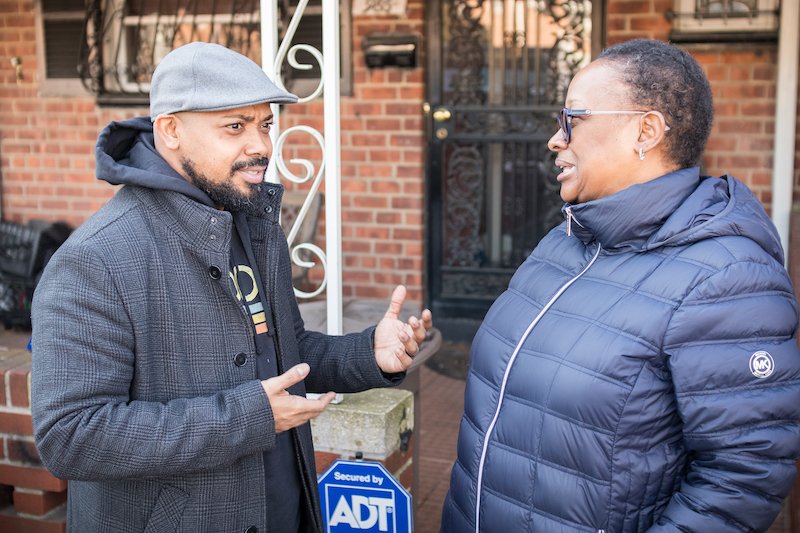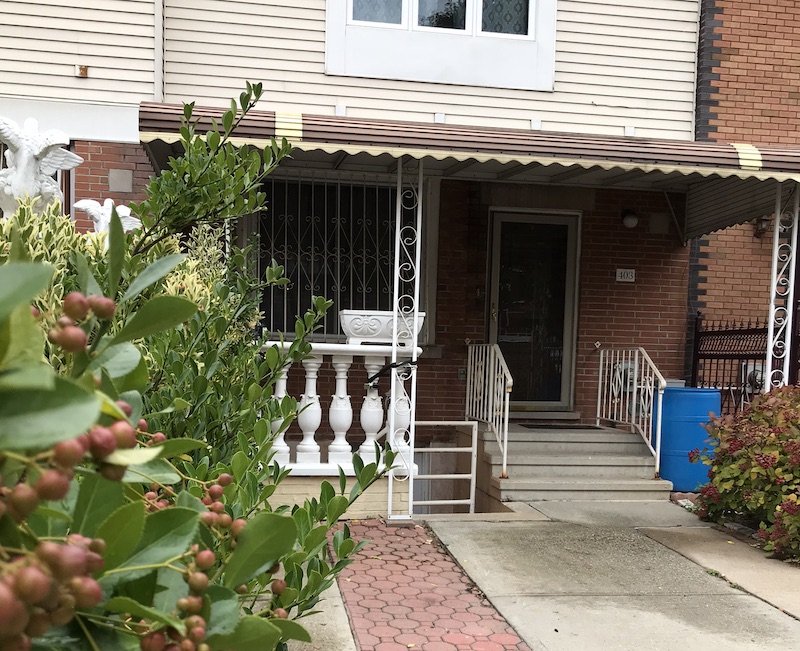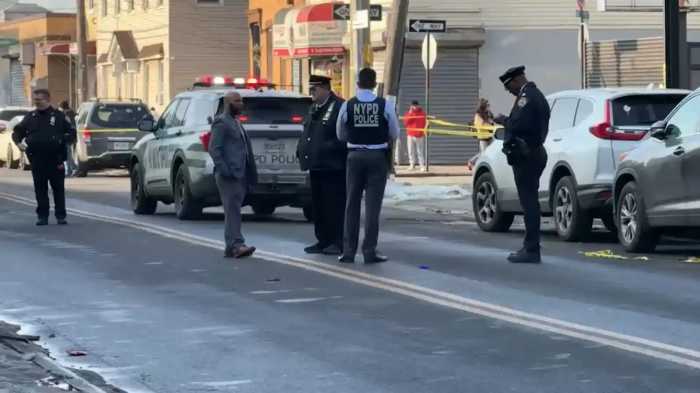In 2018, East New York was selected to pilot a program to create and renovate legal basement and cellar apartments. The program would provide low-interest loans to ensure safety, code compliance and streamline an antiquated and complicated process.
The program was a result of a 2016 study, which in turn was part of the East New York Neighborhood Plan, Mayor de Blasio’s first administration rezoning.
“This program will increase the stock of affordable housing in East New York, provide additional income to homeowners, and ensure tenant safety,” de Blasio said during the program’s announcement.
Homeowners would apply with the support of a community-based organization that would support them throughout the process, including applying for a “low-interest” loan and selecting an architect and contractor from a limited list approved by the city. The community partner would also monitor the construction of the basement.

The palpable excitement for the program was immediately tempered as homeowners realized that, as with most city programs, which sound incredible in concept, the implementation lacked practicality, transparency, and cultural sensitivity. The city does a poor job at engaging the community as it steamrolls policy and programs. Particularly in East New York, a community that has traditionally been disinvested and disenfranchised, that reality must factor into the implementation of any program that aims to address a growing and imminent need.
The program requires a home appraisal paid for by the homeowner, which can cost upwards of $800 and an analysis of renovation costs. In one instance, Ms. Carmen Daniels, a retired school teacher and Nehemiah homeowner with a finished basement received a conversion estimate of $258,000 (adding entrance, egress, and bath), nearly three times the original purchase price of the home ($89,000 in 1989).
Daniels was offered a $120,000 loan (sans interest rate at the time of agreement approval), and would still have had to come up with a balance of $158,000 in order to proceed with the basement conversion.
Converting and legalizing basement spaces has the potential to convert as many as 38,000 basements throughout the city without making significant changes to city or state laws. However, the overly bureaucratic, cost prohibitive process creates a barrier and negates any positive impact.
An infusion of recently converted, safe, and legal basements would ensure that the homeless, rent-burdened, or those just desiring to remain in their communities as the winds of gentrification force them elsewhere can remain.
Unfortunately, in its implementation in East New York, the program has been largely ineffective, inaccessible and impotent at addressing the crisis it aims to quell. Homeowners deserve a real opportunity to leverage their investment and access additional income without having to take out a second mortgage. Good intentions are useless without an accessible process.
As part of his State of the City address last Thursday, de Blasio came out in full support for the expansion of the program. The Basement Apartment Conversion Program must be perfected here in East New York. If it is, it will serve as a model for the entire city. Although it wouldn’t eradicate the growing housing crisis, it would be an effective tool and would provide a much-needed income stream for homeowners.
The city must resolutely analyze the program’s shortcomings here on the ground before it is expanded city-wide. We as advocates must continue to hold the city and our elected leaders accountable and not be distracted by empty promises that leave our communities worse off.
Wilfredo Florentino is a life-long Brooklynite and Community Advocate. He serves as a Board Member of the New Lots Nehemiah Homeowners Association, and Transportation Committee Chair of Brooklyn Community Board 5 since 2014. Wilfredo is a candidate for New York City Council in the 42nd District and lives in East New York, Brooklyn with his husband, daughter and dog.










